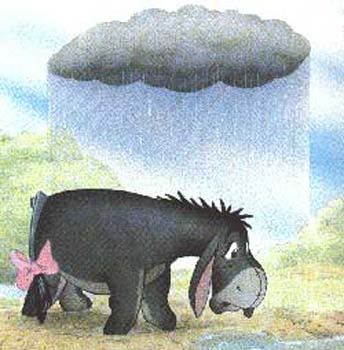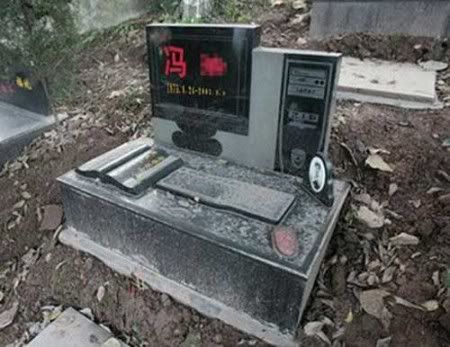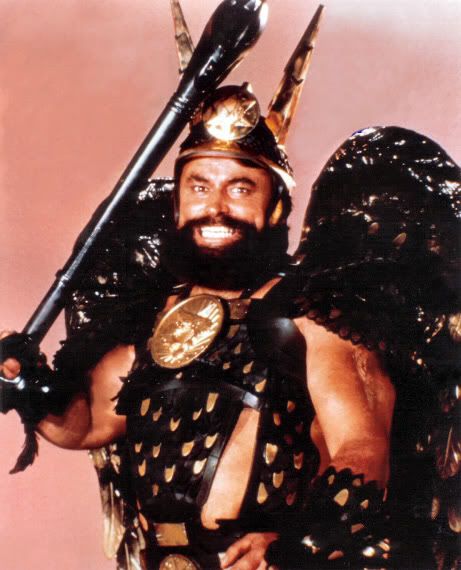
Courtesy Jared Fein & laryn.kragtbakker.com
Sooner or later, the work you do is going to come under fire. Mistakes are going to be made. Guess what? You’re a human being. Mistakes are inevitable. How those mistakes are handled, corrected and prevented from repeating themselves matter more than the mistakes themselves, with the experience informing the better construction of future works. Hence, “constructive criticism.”
It tends to work best, however, if the criticism begins with you. And as a critic, you suck.
At least when it comes to your own work, that is. Your opinions, your creations, your procedures have all be formed by you (or, in the case of opinions, possibly snatched from more prominent critics for rapid regurgitation – we’ll get to that) and you’re going to be as defensive of them as any creator is of their created. I’m as guilty of this as anyone, and I know how that sort of behavior can circle right around and kick you square in the ass just when you don’t need it to.
It’s like bruises in martial arts, loose teeth in hockey, a face covered in egg on a televised debate. It’s going to happen. Beyond a couple of opinions of yourself and your creations that I can tell you are patently untrue, how to get back up when one of these events flattens you is a matter for the moment and circumstance. Communicate, discern, be patient and communicate more. Nobody will get anywhere while blood is up and words are lost in the volume, so step back, breathe, look at the situation and act in the interest of everybody involved, not just you.
Okay, enough hand-holding and team-building, here are two big fat lies we tell ourselves when it comes to stuff we do.
This Is The Best Thing In The History Of Ever!
No. No, it isn’t.

The following might feel something like the above.
The things we consider great only got that way through long, grueling processes, the input of several people and the viability of whatever environment into which they were released. There’s a factor of luck involved as well, but that’s not something we can control, so we’ll leave it out of this deconstruction.
Basically, to keep ourselves going, we may at times tell ourselves that what we’re doing is good. That’s fine, and it probably either is good or will become good. What it isn’t is the best thing ever. Not on its own, and especially not in its first iteration. No author I know of hit the bestseller list with their first draft or even their first book. No director makes an Oscar-winner the first time they point a camera at something, unless they got their hands on the super-secret list of critera the folks in the Academy check off when they watch movies that might be worthy of the golden statues they give to rich people. Then again I’ve grown somewhat jaded with the whole Oscar thing and it’s colored my opinion somewhat.
That’s another thing. Opinions. Now I’m as guilty of the following as another special snowflake individual on the planet, and it bears saying & repeating to myself as much as anybody else. I’m fully aware of the glass house in which I live, but dammit, sometimes you just gotta toss a rock.
Your opinion is unlikely to be entirely your own. It might be right or wrong, but to defend it like it’s gospel is not going to win you any friends no matter from where or whom it originally derived. Our tastes, viewpoints and leanings are a combination of our life experiences, the things others say and do around us and the environment in which we live. Other people have had similar experiences, heard or seen the same things we have and/or live in similar environments. That means your opinion is highly likely to be not entirely your own and should be taken with a grain of salt, even if you’re telling it to yourself.
Back to your work. I’m sure it began with a good idea. Ideas can persist through edits, revisions and future iterations. The idea might still be good even if the implementation sucks ass. That doesn’t mean the overall product is good. A good idea badly implemented makes for a bad product. Look at what happened to Star Wars. What’s important to keep in mind is that you might not be able to find all of the flaws in your own work, and in order to make it the best it can be before it ships, you might need to take some knocks to the ego. If you can remember that your idea and work are not the Best Things Ever, if you can maintain the ability to take your own creations with a grain of salt from an objective viewpoint, the overall product will be much shinier for it.
TL,DR: Don’t act like your shit don’t stink.
This Absolutely Sucks & Will Never Amount To Anything, I Should Quit Now

Cheer up, emo donkey.
Ah, the other extreme. I hate this one just as much.
Let me pause a moment before I rant in the other direction from where I just came from. If you truly feel your time will be better spent doing somthing other than the thing that you’re considering the absolute worst that humanity has to offer, I can understand that. Go and do the other thing you want to do. I and others might still consider what you’ve done worthwhile or even worth sharing, but you are the best arbiter of how to spend your time and energy. Just remember others are entitled to their opinions as much as you are.
Okay? Okay.
Remember how I said that the things we consider great didn’t start that way? That means they started in a state of not being great. In fact some of the first attempts probably sucked out loud. I’d love to see a first draft of The Stand or an early shooting script of RDM’s from Battlestar Galactica or Michaelangelo’s first painting. These creative minds only became great after the grueling process of editing, revising, being told they suck, editing and revising again, and managing to find the right time, people and environment for introducing their work.
Since soothsaying isn’t exactly a reliable basis for planning, the only way to find the right time is to keep trying. Finding the right people means going out and meeting some. And locating the right environment can be a matter of research. Don’t try to put a work with a narrow genre focus into purveyors with general, broad interests; try instead to locate an venue catering to similar tastes and passions to whom you can relate and communicate, and let them see what you can do. The ceiling of the Sistine Chapel is a monumental achievement, but it wouldn’t have gotten painted if Michaelangelo had been approached by the manager of a Starbucks instead of His Holiness.
Notice that this is all stuff you can control. Your work is no different. If you really think your work isn’t good, and you want it to be, you can improve it. Work at it. Practice. Don’t let the nay-sayers and the lowest common denominator and the mediocrity get you down. Nothing excellent ever comes to be out of nowhere and without some work and sacrifice. Give up some time, expend some energy, burn a little midnight oil, and make that thing as powerful and awesome as you can. And believe me, most of us are capable of being pretty damn awesome if we’re willing to pay that price.
TL,DR: Don’t act like your shit is a world-scale biohazard.
I think I’ve said about all I can on this subject. No human being is the be-all end-all of all great things; neither are any of us completely and utterly irredeemable. I think we could all stand to take things said to us, about us and by us with a few more grains of salt.








